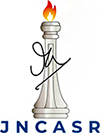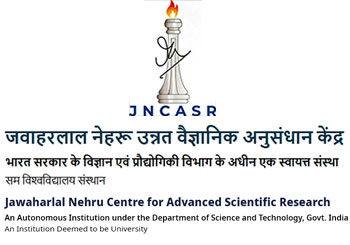Other Drives/Programmes
Primary tabs
On account of the 8th Ayurveda day celebration- Health awareness talk, medical camp, and medicinal plants' distribution were held at Jawaharlal Nehru Centre for Advanced Scientific Research (JNCASR ) Bengaluru by the CCRAS-CARI Bengaluru research team on 03rd Nov. 2023.
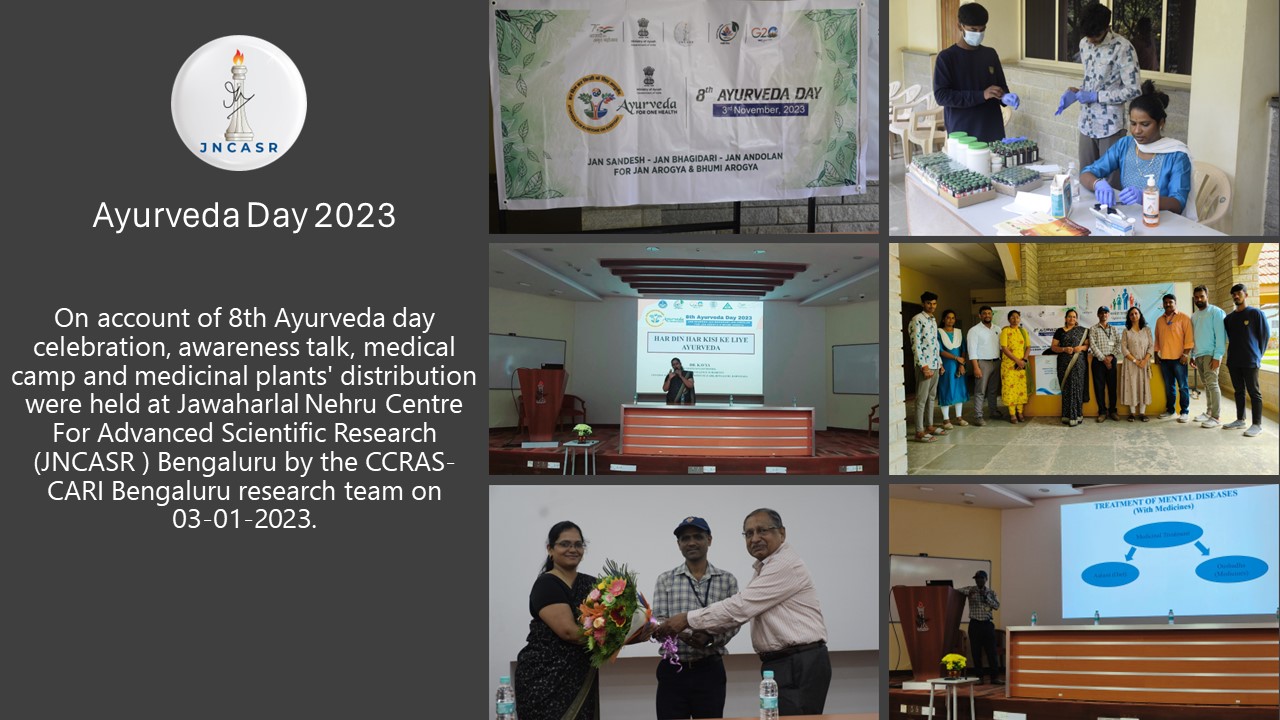 ,
,
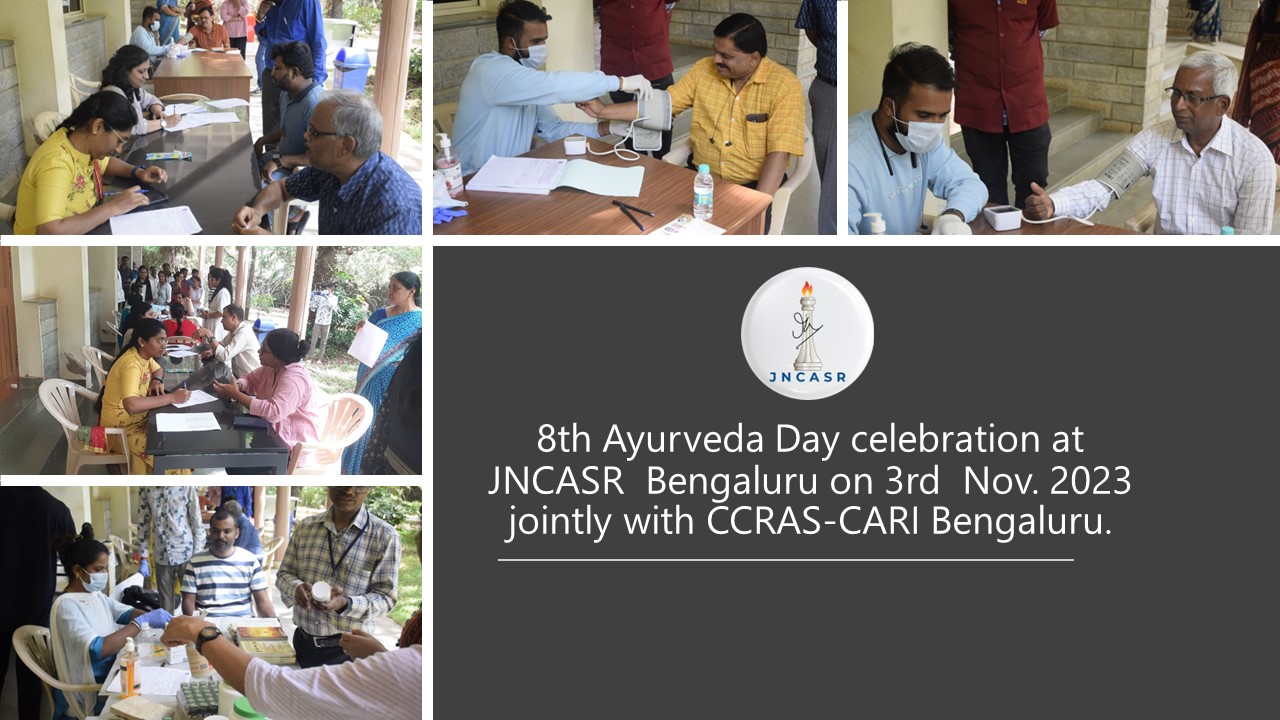 ,
,
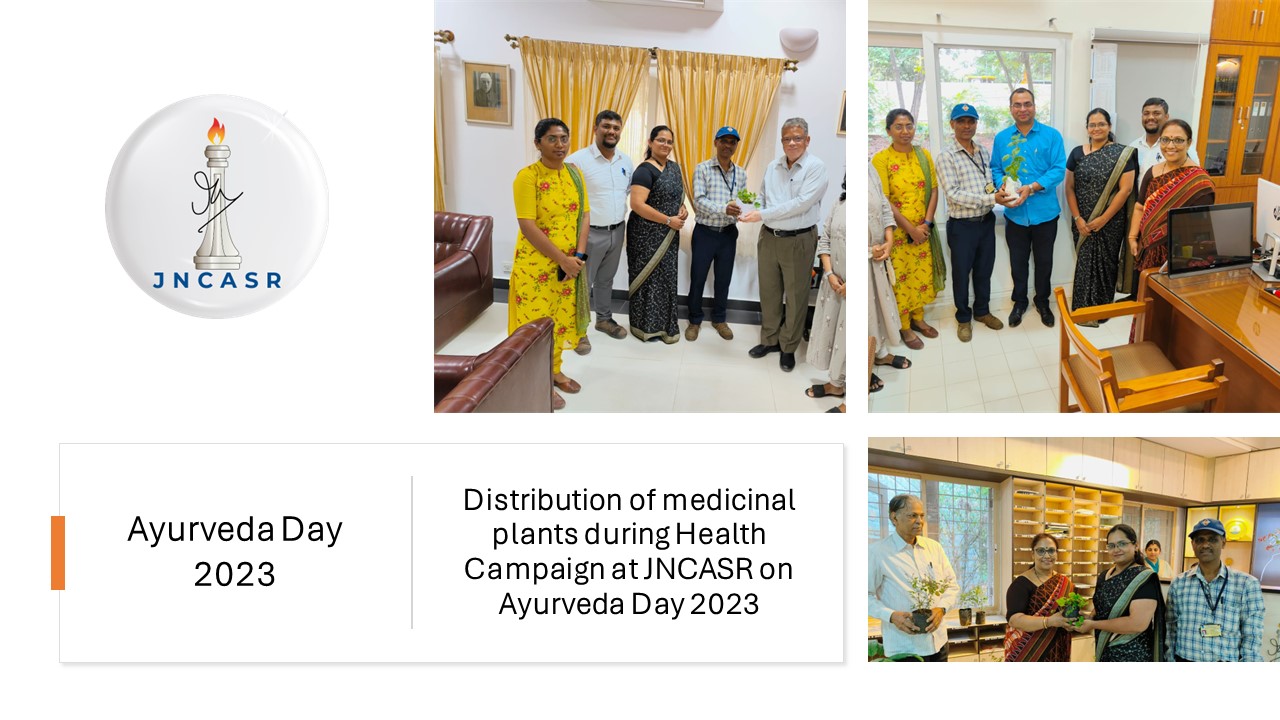
- Members of JNC community wore dresses made from khadi/handloom fabric on 31st October 2023.
- Khadi Mahotsav campaign 2023 was conducted by oath-taking with the theme ‘Vocal for Local’ encouraging them to buy Khadi local products and to inculcate pride in local products.
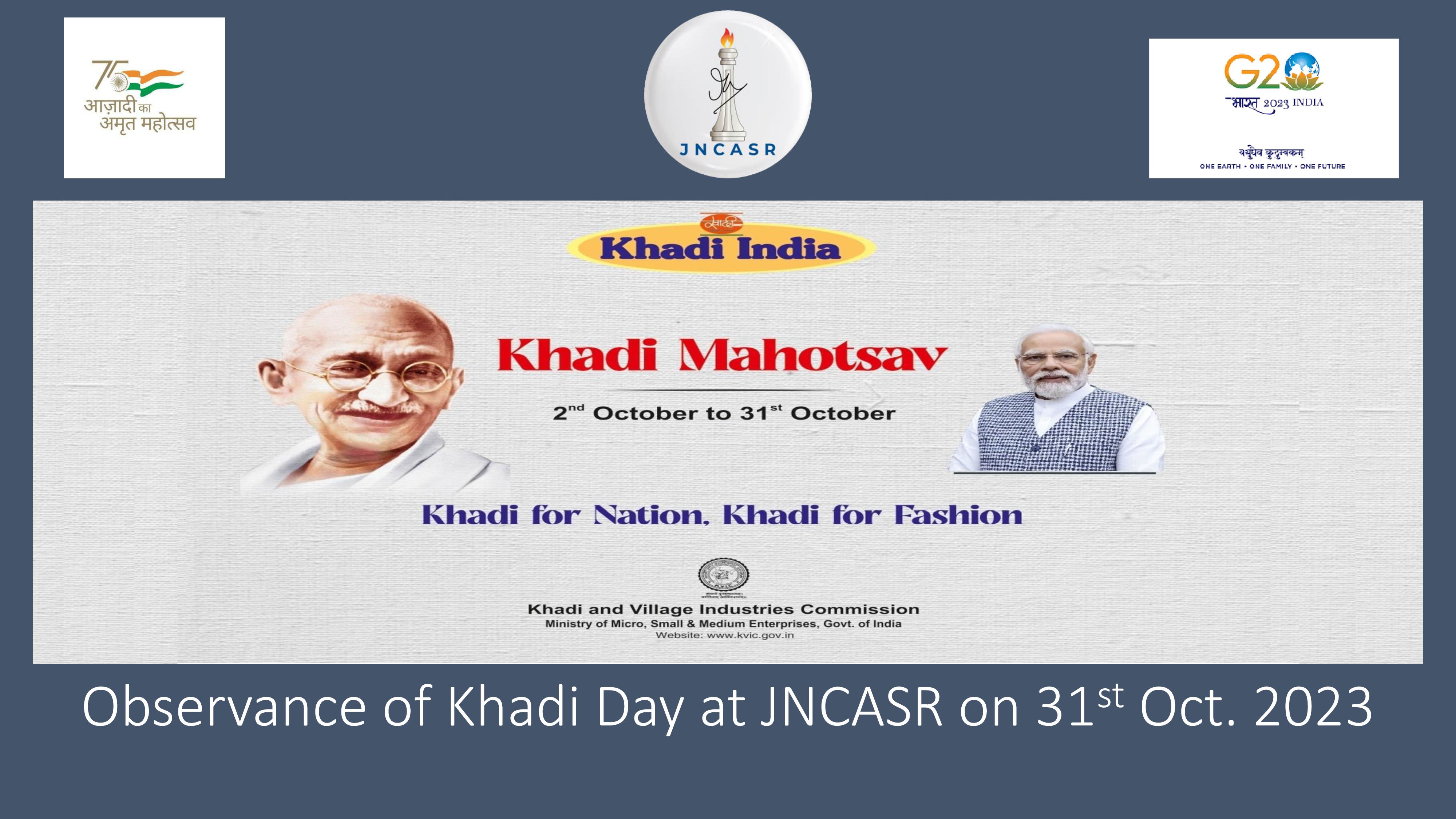 ,
,
The European Union delegates visited JNCASR along with the research and innovation counsellors of the EU member states on 25th September 2023.
The main objective of their visit was to foster Research Innovation (R I) cooperation between the European Union (EU), its Member States (MS), and Associated Countries (AC) with leading Indian research institutions.
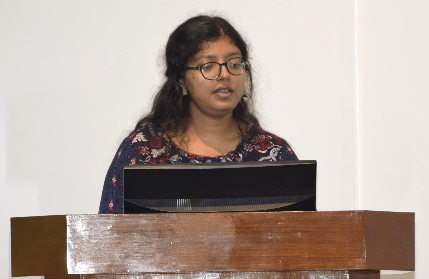
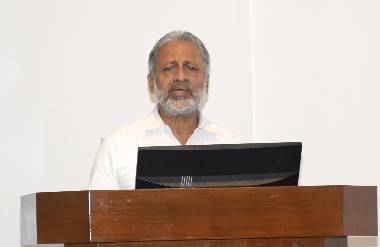
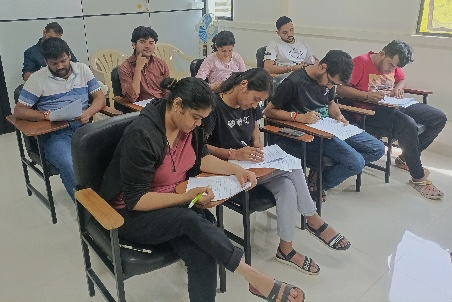
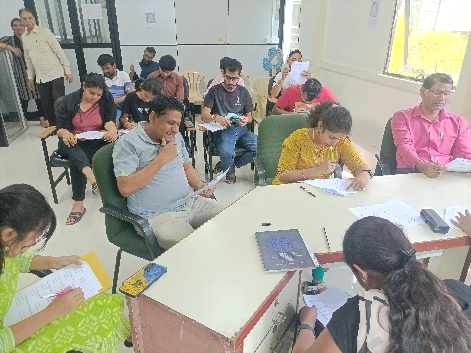
जनेउवैअकें में हिंदी पखवाड़ा समारोह – 2023
दि. 14 से 29 सितंबर 2023 तक जनेउवैअकें में हिंदी पखवाड़ा - 2023 समारोह आयोजित किए गए थे। हिंदी निबंध, हिंदी में टिप्पणी व आलेखन, हिंदी लिखित प्रश्नोत्तरी, हिंदी अंताक्षरी जैसी विभिन्न प्रतियोगिताओं का आयोजन किया गया था। 26 सितंबर 2023 को "भारतीय भाषा का सौहार्दता दिवस" के रूप में मनाया गया था और भारतीय भाषाओं में गायन प्रतियोगिता का आयोजन किया गया था। इस प्रतियोगिता में प्रतिभागियों ने विभिन्न भारतीय भाषाओं के गीत प्रस्तुत कर अपनी प्रतिभा दिखाई।
सभी पुरस्कार विजेताओं को 75% नकद और 25% राशि हिंदी पुस्तकों के रूप में दी गई ताकि हिंदी पुस्तकों के पढ़ने को प्रोत्साहित किया जा सके। इसके अलावा, सभी प्रतिभागियों को भी प्रतिभागिता पुरस्कार प्रदान किए गए।
Hindi Fortnight - 2023 Celebrations
Hindi Fortnight - 2023 Celebrations were organized in JNCASR from 14th to 29th September 2023. Various competitions such as Hindi Essay, Hindi Noting & Drafting, Hindi Written Quiz, and Hindi Antakshari were conducted.
On 26th September 2023, "Indian Languages Harmony Day" was celebrated. A Singing Competition was organized where participants showcased their talent by singing songs in different Indian languages.
Apart from cash prizes, winners were also given Hindi books to encourage reading in Hindi. Participation prizes were also distributed.
Meri Maati Mera Desh Campaign held at JNCASR on 16th August 2023
"Meri Maati Mera Desh" envisions a unified celebration of India's soil and valour, commemorating the nation's journey of freedom and progress. By connecting with the land and honouring our heroes, the campaign fosters a deep sense of patriotism.
As part of the Azadi Ka Amrit Mahotsav (AKAM) initiative, the ‘Meri Maati Mera Desh’ campaign was organized at JNCASR on 16th August 2023.
Activities conducted as part of the campaign:
- Saplings were planted to promote the initiative of ‘Keep the Earth clean and green’ and to instill environmental consciousness in our community.
- Prof. Vidhyadhiraja, Dean of Fellowship Extension, administered the Panch Pran Pledge in Hindi and English, encouraging everyone to contribute positively to society.
- The students of the cultural group presented the Mitti Anthem to instill a sense of unity, pride, and patriotism.
A large number of faculty members, students, staff, and children actively participated in the campaign.
NAMMA Psi-k Workshop
New Approaches and Machine Learning Methods for Ab initiocalculations
The Workshop is held at JNCASR from (24th to 26th July 2023)and atIISc, Bengaluru from (27th to 28th July 2023)
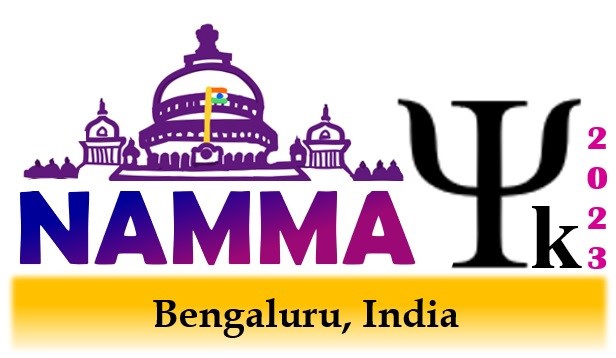
At present there is no content available for this section, once content will be available would be updated.
- Back to previous page
- |
-
Page last updated date:03-02-2026 08:15 PM





